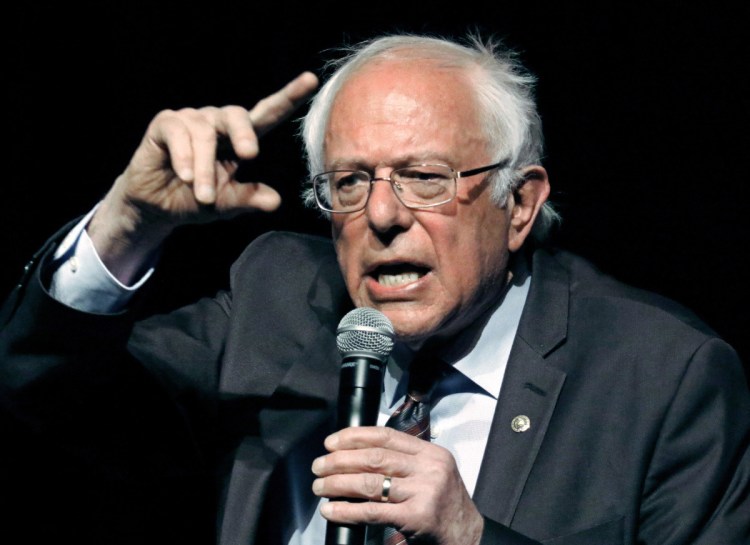Having seen in the Portland Press Herald no reporting or comment on the recent fiscal analysis of Bernie Sanders’ Medicare for All, or M4A, bill, I wanted to be sure readers knew about it.
In the study, done by Charles Blahous of the Mercatus Center, one can see, among other things and buried in Table 2, that, for the decade 2022 to 2031, the National Health Expenditure (country’s total health spending) under M4A would be $2.054 trillion less than it would be with our current system.
Mr. Blahous highlights two problems, though. First, he projects the cost to the federal government of funding health care this way during that decade would be $32 trillion. But this sum is large because, commercial premiums and cost sharing being eliminated, the (reduced) health care cost would be paid entirely through taxes. Most Americans would end up keeping more of their money while enjoying reduced bureaucracy, reduced job lock, less threat of debt, more freedom of choice. Many would have improved coverage; many coverage for the first time.
Second, $5 trillion of the savings created by the M4A bill would result from setting provider reimbursement at Medicare levels (60 percent of commercial insurance levels because of Medicare’s high-risk population).
Understandably, providers might protest. However, reimbursement decreases could be lessened by using some of the $2 trillion in savings, as well as some of the even greater potential savings highlighted by Woolhandler and Himmelstein in their critique of the study. Provider reimbursement could well be maintained with no increased overall health care cost.
As we have seen in previous health care reform efforts, benefits of reform can bring problems. In the case of M4A, however, many may conclude that the benefits of the reform outweigh the problems, which may not be problems at all.
Daniel Bryant, M.D.
Cape Elizabeth
Copy the Story LinkSend questions/comments to the editors.



Success. Please wait for the page to reload. If the page does not reload within 5 seconds, please refresh the page.
Enter your email and password to access comments.
Hi, to comment on stories you must . This profile is in addition to your subscription and website login.
Already have a commenting profile? .
Invalid username/password.
Please check your email to confirm and complete your registration.
Only subscribers are eligible to post comments. Please subscribe or login first for digital access. Here’s why.
Use the form below to reset your password. When you've submitted your account email, we will send an email with a reset code.